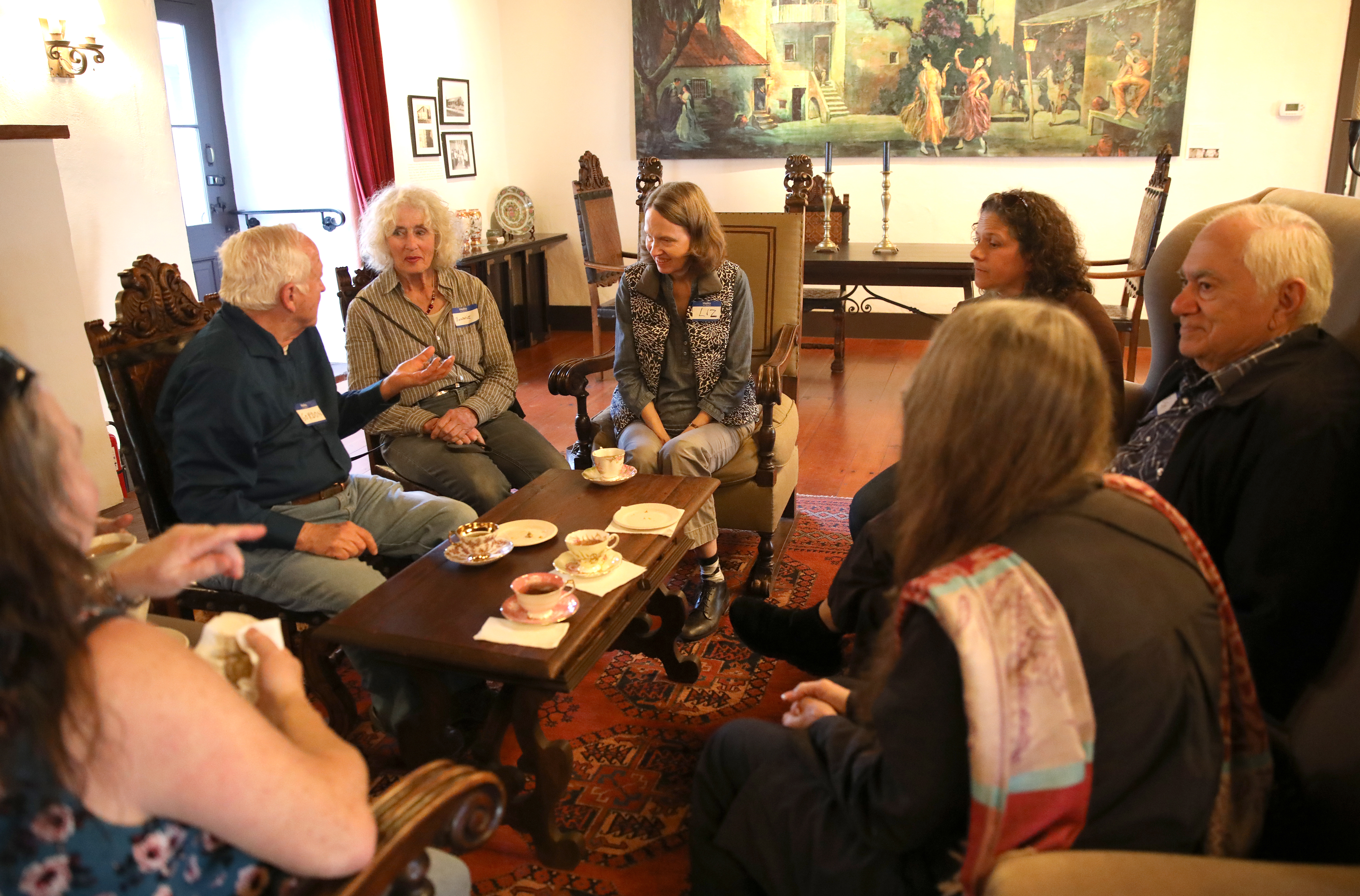Discovering Death Café
Finding Solace for Grief and Acceptance of Mortality in a Santa Barbara Conversation Group

I can’t recall how I found out about Death Café, or what attracted me to the group, but I do recall a calming sense of relief. I had found a safe place to talk about death — safe for others who do not want to hear about it, who don’t want to speak of the loss they feel for loved ones no longer with them, missed so deeply it hurts.
In our home, my father was missed so deeply that our children would leave the room if discussion turned toward life with Grandpa. But soon, we were able to speak of how much he would have enjoyed the dark chocolate or ice cream we shared. He was a lover of sweets. That was the limit of sharing in our home when I discovered Death Café four years ago.
I was thankful for the space to talk about his death, and the many deaths of his that preceded his leaving us forever. His struggles with Lewy body dementia exposed our family to a new reality we had never before imagined: confusion, disorientation, falls and injuries, hallucinations, and an awareness of the coming end. The many losses we experienced, the small deaths, were not spoken of. There was no time, because the next death was looming, and often it was unspeakable. After he died, the trauma of the past year was over, but what just happened?
There is a place for grief in community, an acceptable way to process loss — but what of the trauma experienced in its unfolding? And where can we talk about death? Where can we share thoughts or fears — what happens, where does it lead? How do we prepare and let go of the bodies of our loved ones? How do we honor the dead? How do we prepare for our own mortality? Death Café gives us a place to explore this, but just as importantly, it lets us ask about life, spirituality, health, and disease. We explore our culture of keeping death at a distance, and our culture of consumerism — where does it all go when we are gone? Death Café welcomes this exploration with tea and cookies, literally, and you can share your experience or just listen.
Since my father’s death, there have been more in my life. Individual deaths that came to pass intertwined my life with others and were grieved and honored. My father was a survivor of a Nazi death camp in Poland. His experience with death was surreal, and the intergenerational trauma borne from his experiences was felt deeply within and remains ever present in my own relationship to death. But I desire to understand death not only from the atrocity of war and hate, the loss of millions, but also the intimate loss of individual life, which is also profound.
There are many reasons for my attraction to Death Café. Although I write of some here as best I can — its warm embrace, holding space for exploring challenging themes and contemplating individual experience — simple desire for greater understanding of life and our own mortality is enough.
Use the upper right search bar at deathcafe.com to find upcoming meetings in Santa Barbara.



